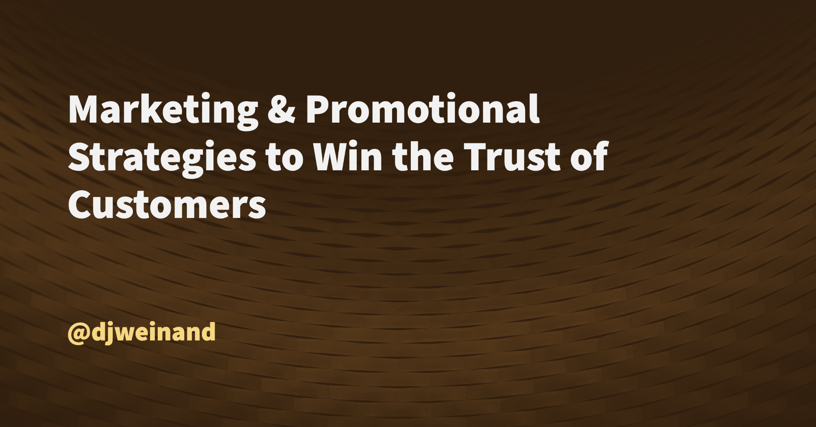In this blog, learn from leaders at Sur La Table and Chief Outsiders the importance of the right message and promotion in an era of uncertainty and fear.

Featured in This Exclusive Fireside Chat
![]() Dave. What promotional or marketing strategies will be effective as the economy begins to reopen?
Dave. What promotional or marketing strategies will be effective as the economy begins to reopen?
![]() Natalie. Right now I think there's really an opportunity for brands to be very helpful and act as a resource in their marketing messaging. It's imperative for companies to take some time and understand their ‘why’, the value that they provide to the customers and really figure out how to communicate in a relevant and authentic way. I think it's important for companies not to be seen as overly commercial or exploitative of the situation, rather focus on being relevant and timely with their communications in a helpful way and prioritize feel-good content and positive messaging.
Natalie. Right now I think there's really an opportunity for brands to be very helpful and act as a resource in their marketing messaging. It's imperative for companies to take some time and understand their ‘why’, the value that they provide to the customers and really figure out how to communicate in a relevant and authentic way. I think it's important for companies not to be seen as overly commercial or exploitative of the situation, rather focus on being relevant and timely with their communications in a helpful way and prioritize feel-good content and positive messaging.
It's a really good time to be telling some brand stories. Highlight your employees or talk about things that you're doing to help your community and your customers during this time. Put it all in the context of being a resource for useful content. You can also really focus on growing brand loyalty and trust if you are authentic in this way and not seen as preying on the fears of people or overly focusing on selling. Now that doesn't mean that there's not a place for promotions; especially if you're a company that may have seasonal merchandise. Companies exist to sell things so promotions are part of your overall business strategy. However, don't make it the cornerstone of your messaging. Keep it in context and put your focus on providing value in being helpful.
Lastly, I think there's a really good opportunity for retailers to step back and review their customer journeys and their media mix with some scrutiny. Customers have changed the way they shop and how they interact with brands and companies so look at where your customers are and what they're looking for. Then do a cohesive review of your messaging strategy and how and where you're reaching your customers. Finally, make sure it's all synergistic and authentic as you reach out and become a helpful resource for them.
![]() Jon. Restaurants and retailers will have to look at all their promotional strategies in the context of what the consumer mindset is. Just like with the introduction of a new promotion or product - a retailer would need to understand the target audience and their opinions of the product or service. It’s determining the mindset that drives customer behavior.
Jon. Restaurants and retailers will have to look at all their promotional strategies in the context of what the consumer mindset is. Just like with the introduction of a new promotion or product - a retailer would need to understand the target audience and their opinions of the product or service. It’s determining the mindset that drives customer behavior.
For example, restaurant brands have to be very sensitive to the fear and concerns in their marketing strategies. Even three months ago restaurants would never think to run ads that promote cleanliness and that their staff washes their hands and wears masks. However, now retailers and restaurants are looking for ways to position themselves from a competitive standpoint and show how they're cleaner and they are safer.
----
![]() Dave. Do you believe there's a new tonality in messaging, and will that be required long term?
Dave. Do you believe there's a new tonality in messaging, and will that be required long term?
![]() Natalie. We've all gone through a traumatic experience and are feeling really vulnerable right now. So, yes I do think that the new tonality will be required long term. Many have experienced loss, some have lost loved ones, acquaintances, friends and many have lost jobs either temporarily or permanently. Also, I think collectively we all are feeling the sense of loss of the way of life that we may never fully return to.
Natalie. We've all gone through a traumatic experience and are feeling really vulnerable right now. So, yes I do think that the new tonality will be required long term. Many have experienced loss, some have lost loved ones, acquaintances, friends and many have lost jobs either temporarily or permanently. Also, I think collectively we all are feeling the sense of loss of the way of life that we may never fully return to.
Right now it's critical that retailers show empathy, don't make light of the situation, and find ways to connect with each other on a human level and show that we're all in this together. I think it's imperative that brands need to build this trust and those companies who can continue to provide the message that they're taking care of the customers are the ones that are going to succeed.
I also believe that it's going to go beyond messaging. It's how you treat customers that is going to be crucial and brands are going to be remembered for how they acted and whether they delivered on what they said they were going to do.
![]() Jon. It depends on what you mean by long term. Consider this: ‘baby boomers’ were very much influenced by their parents and their grandparents who lived through the economic crisis of the depression. Major crises in our society and our culture can have a very long lasting impact and I do believe that the long term implications of this are going to create a new context within which companies and marketers , in particular, have to review their messaging.
Jon. It depends on what you mean by long term. Consider this: ‘baby boomers’ were very much influenced by their parents and their grandparents who lived through the economic crisis of the depression. Major crises in our society and our culture can have a very long lasting impact and I do believe that the long term implications of this are going to create a new context within which companies and marketers , in particular, have to review their messaging.
In a more recent example, what kind of tone was appropriate post 9/11. You had to really think about what type of context people are living in so that you can design messaging that's relevant and meaningful and in some cases even appropriate. Post 9/11 for example, a lot of the food & beverage industry, bars in particular, which of course are about celebrating and getting together had to create another environment. They toned it down and created more lounge areas so people could relax and could have a place to process what happened. I think some of that's going to be true post this crisis.
----
![]() Dave. How can brands not only win but keep the trust of their customers and guests through marketing?
Dave. How can brands not only win but keep the trust of their customers and guests through marketing?
![]() Natalie. The key to winning the trust of your customers through marketing is going back to knowing why your company exists and what value you provide and then clearly articulating that with transparency, authenticity and being a force for good with positive helpful content that's relevant going forward.
Natalie. The key to winning the trust of your customers through marketing is going back to knowing why your company exists and what value you provide and then clearly articulating that with transparency, authenticity and being a force for good with positive helpful content that's relevant going forward.
There is also an opportunity there to consider tracking your business metrics beyond sales and the normal KPIs. Looking at metrics like customer sentiment and social listening. This is important for two reasons;
- This could be an early warning mechanism on campaigns. If your messaging is not earning that trust and hitting the mark, you can course-correct and determine what it is that your customers need and how to relate that back to the value you’re providing them.
- It can highlight areas where customers may need information. You can then step in and provide on product or customer service issues.
It's also crucial that you share this information with the senior leaders. They're going to be making business decisions in the coming months that they need to make in a way that is aligned with the customer.
Finally, retailers and restaurants need to take a step back and reevaluate their ‘why’. This will guide them as they look forward.
![]() Jon. Really at any point in time, the first step is for you to understand your guests’ mindset and you know what issues are important to them: whether it's safety, food quality, health concerns, I think It all starts and ends with listening to your guests and understanding their needs and their perspectives. From that standpoint, I don't think the process is too different than it was pre-crisis. Certainly, the implications and the circumstances that you have to adapt to are different.
Jon. Really at any point in time, the first step is for you to understand your guests’ mindset and you know what issues are important to them: whether it's safety, food quality, health concerns, I think It all starts and ends with listening to your guests and understanding their needs and their perspectives. From that standpoint, I don't think the process is too different than it was pre-crisis. Certainly, the implications and the circumstances that you have to adapt to are different.
Ultimately, as an industry, restaurant and retail brands have to come out and work together to reassure the public that it's safe to go out and that's going to take time. We aren’t going to recover from this instantaneously and it will likely be a slow recovery.
The key is to understand and listen where your guest is psychologically, to be responsive and respectful of that, and incorporate it in observable ways that make sense for your operation. Finally, monitor and measure the situation to see how you're doing. It really doesn't matter whether you believe this is a crisis or not or if you believe the virus is something that's real. What matters is what your guest is telling you. What do they believe and how is that influencing their behavior?
About the speakers:

Natalie Brown
Natalie’s experience includes See’s Candies and Sur La Table, a 200+ unit kitchen and cooking chain.
Jon Rice
Jon is 30+ year marketing executive who currently operates Chief Outsiders, a fractional CMO firm.To view this or the four other blogs in video form please visit:
Reopening the Doors to Retail and Restaurants: Five Topics to Consider


 Natalie Brown
Natalie Brown 
 Jon Rice
Jon Rice  Dave Weinand
Dave Weinand 

